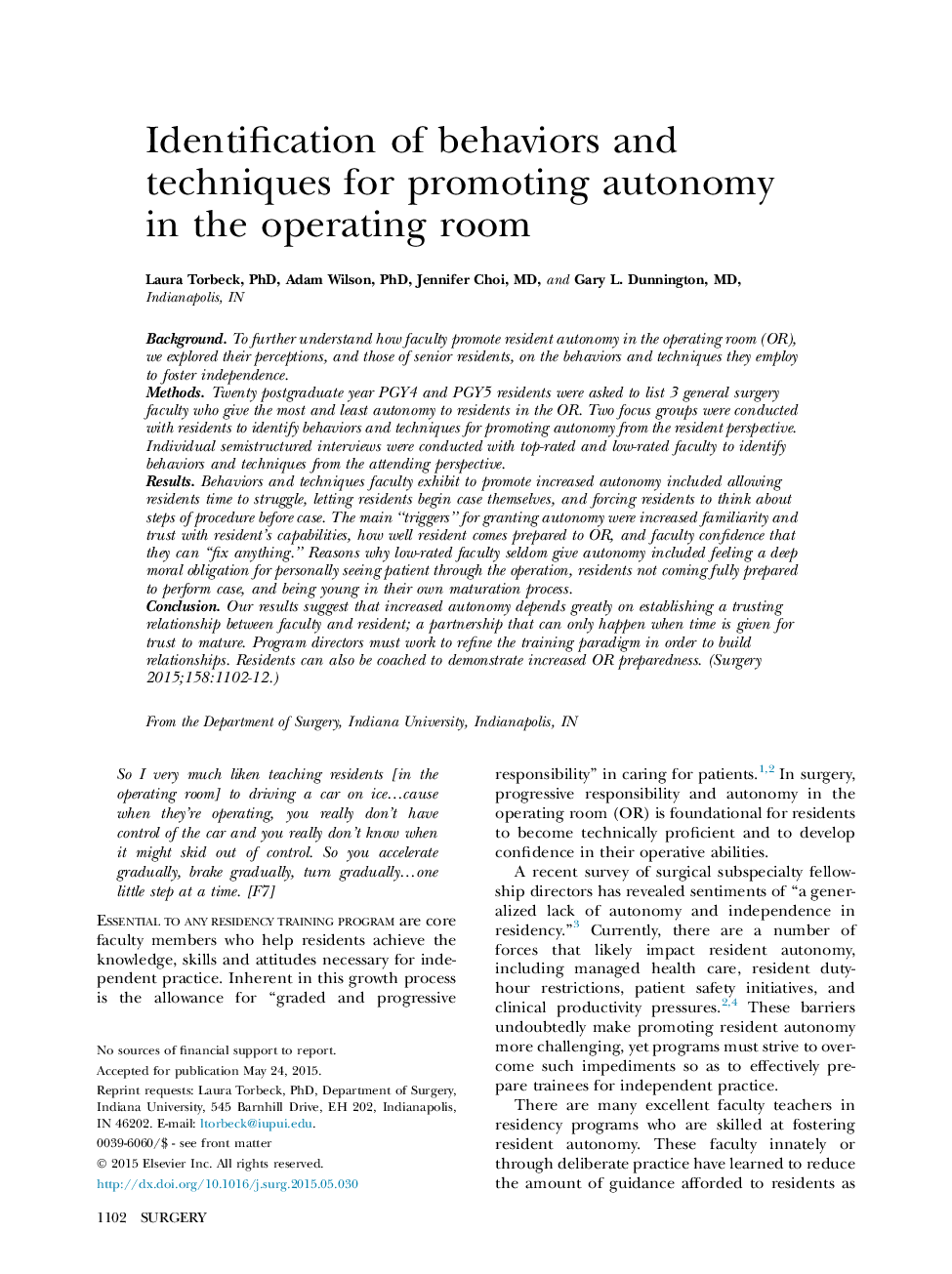| Article ID | Journal | Published Year | Pages | File Type |
|---|---|---|---|---|
| 4306981 | Surgery | 2015 | 11 Pages |
BackgroundTo further understand how faculty promote resident autonomy in the operating room (OR), we explored their perceptions, and those of senior residents, on the behaviors and techniques they employ to foster independence.MethodsTwenty postgraduate year PGY4 and PGY5 residents were asked to list 3 general surgery faculty who give the most and least autonomy to residents in the OR. Two focus groups were conducted with residents to identify behaviors and techniques for promoting autonomy from the resident perspective. Individual semistructured interviews were conducted with top-rated and low-rated faculty to identify behaviors and techniques from the attending perspective.ResultsBehaviors and techniques faculty exhibit to promote increased autonomy included allowing residents time to struggle, letting residents begin case themselves, and forcing residents to think about steps of procedure before case. The main “triggers” for granting autonomy were increased familiarity and trust with resident's capabilities, how well resident comes prepared to OR, and faculty confidence that they can “fix anything.” Reasons why low-rated faculty seldom give autonomy included feeling a deep moral obligation for personally seeing patient through the operation, residents not coming fully prepared to perform case, and being young in their own maturation process.ConclusionOur results suggest that increased autonomy depends greatly on establishing a trusting relationship between faculty and resident; a partnership that can only happen when time is given for trust to mature. Program directors must work to refine the training paradigm in order to build relationships. Residents can also be coached to demonstrate increased OR preparedness.
